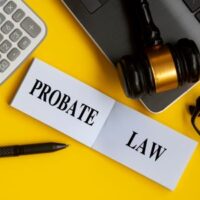Adopted Children, Genetic Parents, and Florida Probate

The phrases “legal father” and “legal mother” occur frequently in documents submitted to and issued by the family courts. For example, if an unmarried man wants to exercise his right to court-ordered parenting time, he must establish legal paternity. Establishing legal paternity does not require DNA testing. Rather, a man can become a child’s legal father by being married to the child’s mother when the child is born or by submitting a voluntary declaration of paternity signed by him and by the child’s mother. A genetic relationship only matters when the mother is requesting child support and the man has not established paternity. In the case of adoption, DNA is not what matters. When an adoption becomes final, the adoptive parents become the child’s legal parents, and this legal relationship continues for the rest of their lives. Of course, all families are unique; some adopted children never find out the identities of their genetic parents, while others establish a familial relationship with genetic relatives of theirs after they reach adulthood. If complicated relationships between adopted children and their birth parents are causing issues in a probate case in your family, contact a Dade City probate lawyer.
Can Adopted Children Inherit From Their Birth Parents?
In Florida adoption cases, when an adoption becomes final, the adoptive parents become the child’s legal parents, and the genetic parents lose their parental rights. Despite this, the testator of a will has the right to leave money to anyone he or she chooses, regardless of familial relationships or lack thereof. A birth mother who placed a child for adoption decades ago may leave money to this son or daughter in her will, just as she may leave money to her siblings, her friends, or anyone else. If she dies without a will, the child she placed for adoption does not inherit from her, because she is not his legal mother.
With the widespread availability of DNA tests, people can easily find their genetic relatives. Unscrupulous estate research firms may try to entice adoptees to file claims with the estates of their birth mothers, even if they have little chance of inheriting. All of this is distressing for the personal representative of the estate and for the other surviving family members. If you placed a child for adoption and want to establish a relationship with him or her before it is too late, speak up now, and mention your child by name in your will. If you are the personal representative of the estate in this situation, you need a probate lawyer.
Contact a Florida Estate Planning Attorney About Probate Cases
A probate attorney can help you if you are the personal representative in a probate case where the decedent placed a child for adoption. Contact The Law Office of Laurie R. Chane in Dade City, Florida to discuss your case.
Source:
caselaw.findlaw.com/court/fl-district-court-of-appeal/116478876.html
